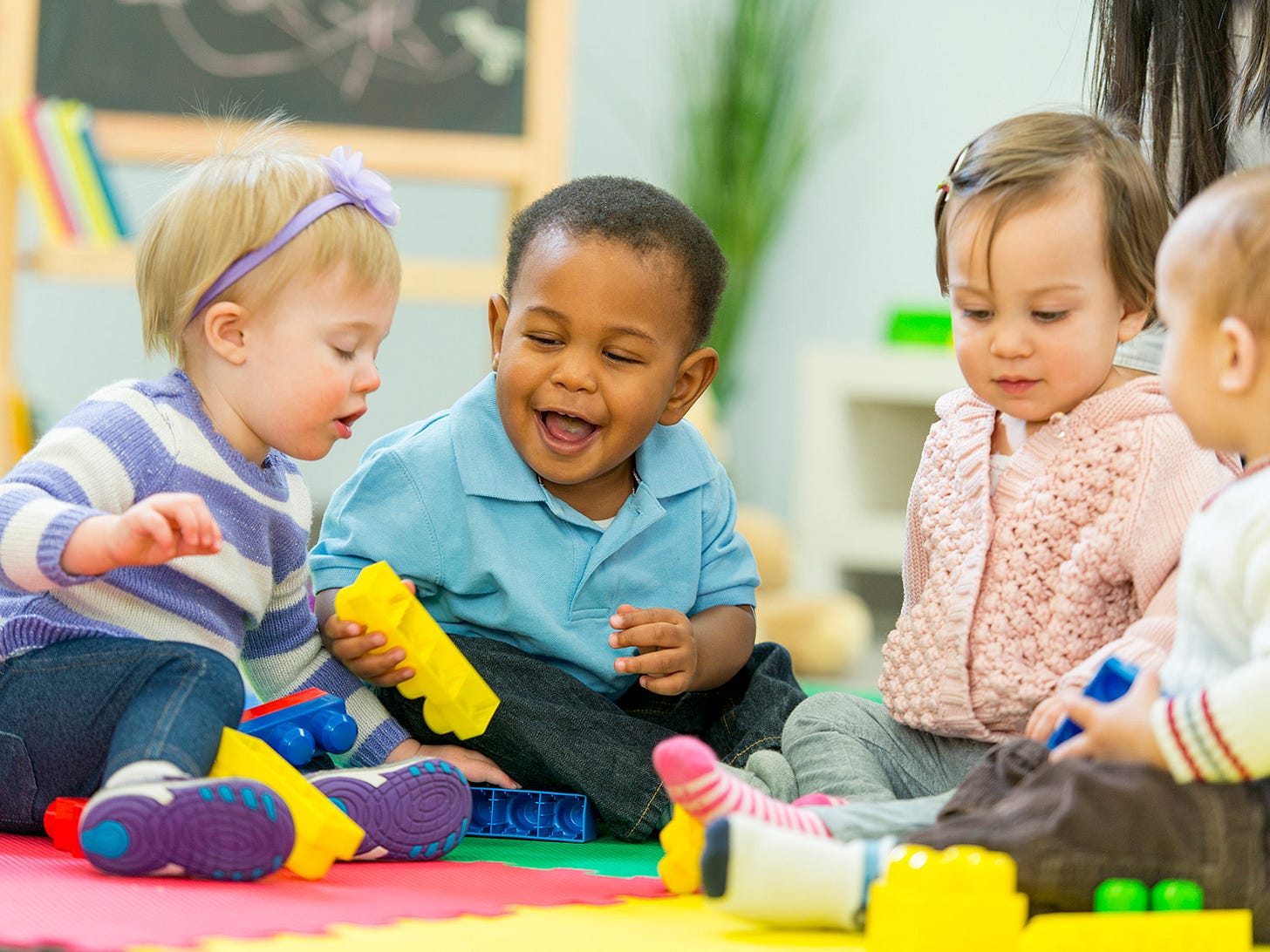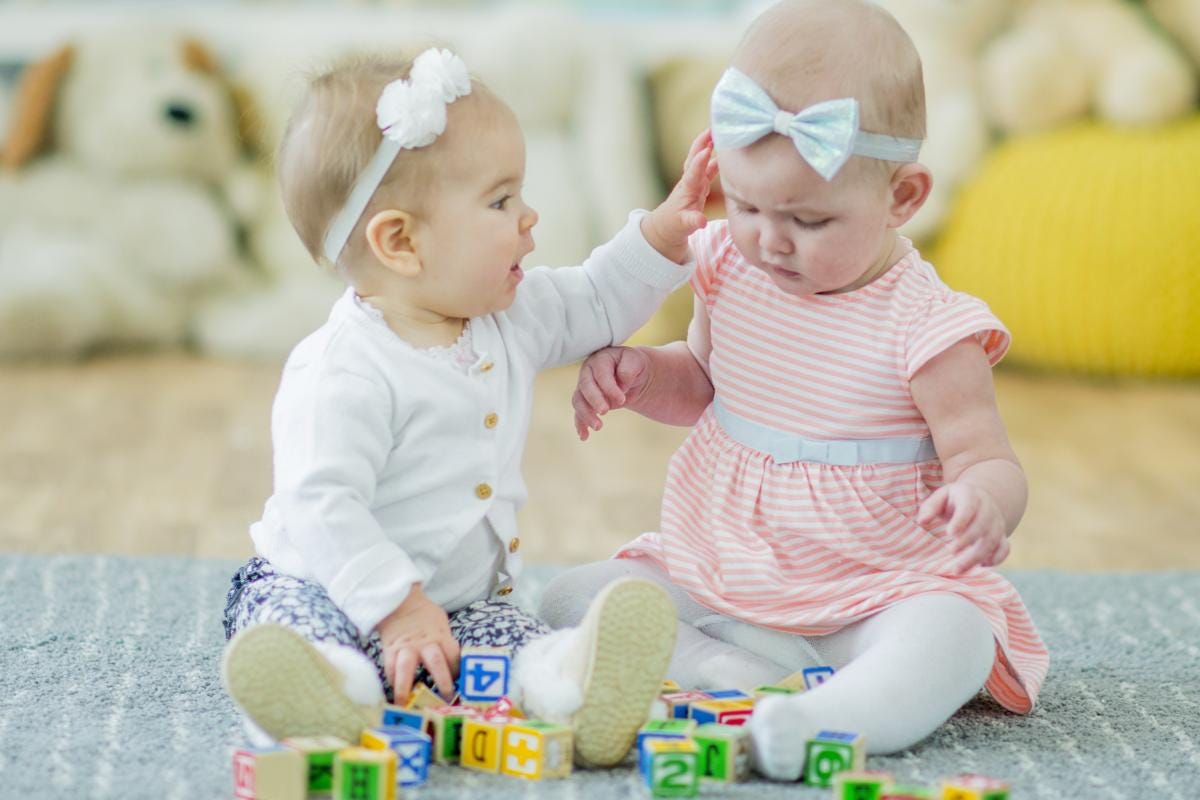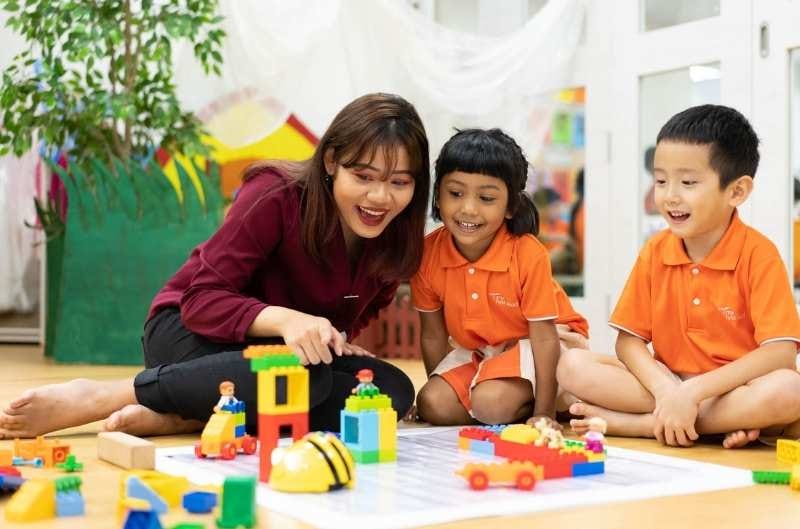Children's Social Development Process
Learn more about your child's social development. How do they learn the necessary skills, and what's the timeline?
Do you know how and when your child starts to make friends and learn more social skills?
Children's social development process begins with their parents. Since birth, your child has an eye on you to meet their needs.
These needs are initially limited to feeding and providing security. As your child grows older and more aware of their environment, more attention and stimulation are needed.
Parents are the child's first playmates.
Children depend on their parents to meet all their needs. They are thrilled to hear your voice, see your face and touch your hands.
The sense of security you provide for your child is the foundation of their social relationships in the future.
With the help of parents, children learn to enjoy their relationships. But it takes time to build authentic friendships and participate in group games. Your child grows socially at a pace that is his own.
The following is a description of the steps that show the child's social relationships at different ages.
Starting of Social Development in Children
From the time your child is born, he starts communicating with others. In the first year of his life, your child's entire focus is on discovering and identifying abilities such as picking up objects, walking, talking and playing with parents. At this age, your child enjoys seeing other people but prefers to communicate only with their parents. Around the age of two, they gradually enjoy playing with other children. But like other skills, socialization skills also go with trial and error.
At first, they don't have the desire or understanding to share their toys or belongings. But they gradually learn to empathize with their playmates, and at the age of three, they find the ability to make friends.
Stages of Children's Social Development
One Month Old
Children, from the very beginning of their birth, are social beings. They like to be touched and embraced. They enjoy your smile and the sound of your voice. They enjoy seeing your face and sometimes try to mimic your facial expressions.
To make eye contact with your child at this stage, make sure to stay within 20-30 cm of them since their eyesight has not been fully developed yet.
Two Months Old
At two months of age, your child spends his wake windows exploring and identifying his surroundings. You'll probably see his first smile at this age.
Three Months Old
Soon your child becomes professional in smiling and smiles at you to start the conversation and create gibberish sounds. Be sure to enter into a conversation with him.
Some children are more social than others. The child may smile spontaneously at someone or stare at him for a while.
Four to Five Months Old
At this age, your child has made a relationship with other relatives in their life, besides their parents. However, their parents remain the most beloved people in their life. Your child shows an extraordinary passion for you as parents, and this shows his deep bond with you.
Six to Twelve Months Old
At six months of age, your child knows their name and responds to it.
As your child becomes more mobile, his interest in socializing with other children increases. She plays happily alongside other children. They smile at each other from time to time or imitate each other's voices. But keep in mind that at this age children don't play together and are just happy to be together.
At about seven months of age, separation anxiety appears and usually peaks between 10 and 18 months. Your child becomes anxious about being with strangers, and if they don't see you next to them, the anxiousness gets more severe. By the end of 12 months, they feel attached to you more than ever, and in your absence, they become upset, frustrated and anxious and may start crying.
Thirteen to Twenty three Months Old
At this age, your child shows interest in their surrounding world. She also finds the ability to make friends by learning to talk and communicate. But she still can't play with other children. At 18 months of age, your child notices the discomfort and crying in other children but does not know how to react.
At this age, your child is not interested in sharing her toys or any of her belongings. You'll probably find that they imitate you or their friends more than ever and constantly watches your behaviour. At this age, your child insists on their independence. For example, they don't want to take your hands when you want to cross the street.
Two to Three Years Old
Between the ages of two and three, your child realizes love and trust. He shows his feelings by kissing and hugging but is still unable to empathize with others. At this age, he gives his toys to others and considers all his playmates his friends. Your child's verbal ability also proliferates and mimics almost all the words and sentences he hears from you.
Your child prefers one or two of his friends more than others. You may see him talking or playing with his imaginary friend. When you read him a story, he shows interest in the feelings of the characters.
Sharing and observing turns improves at this age, but it's not perfect yet. They may become aggressive from time to time and beat or bite to protect their privacy or toys. This type of reaction is sometimes due to desperation because your child, even though they know what they want, still can't express their needs or feelings.
The development of language and speech is the foundation of socialization.
How to Help Develop Your Children's Social Skills
From the first months of birth, communicate face to face with him as much as possible. Communication will make you know him better and meet his needs faster. In addition, he loves the attention he receives from you. Socialize with friends and acquaintances. Your children love new people, especially if they pay attention to them. If a child has separation anxiety, don't worry! Please don't be embarrassed; this is part of their development. Be patient and reassure him of your presence.
Toddlers need to communicate with peers. So try to expand their communications and their circle of friends. To avoid potential conflicts, consider a sufficient number of games and activities in advance and be prepared to intervene.
To encourage a child to develop early social skills, you can join playgroups, mother and child or similar classes in the first year of your child's life; this will help your child gradually get used to other babies and children.
Don't forget that every child has a unique timeline for their development, so not all children should start talking or interacting with others at a certain age. But this timeline is a good measure of how to check your child's social development and, if necessary, consult a child psychologist or specialist.
The recommended solutions in this edition could help understand your child's social development and improve their social skills. As a parent, you can provide the conditions for him to be more present in different social gatherings and practice developing his skills in this field.
If you find this useful or know someone who can find value in this, please help me spread the word.
Thanks for giving my work a slice of your attention!




